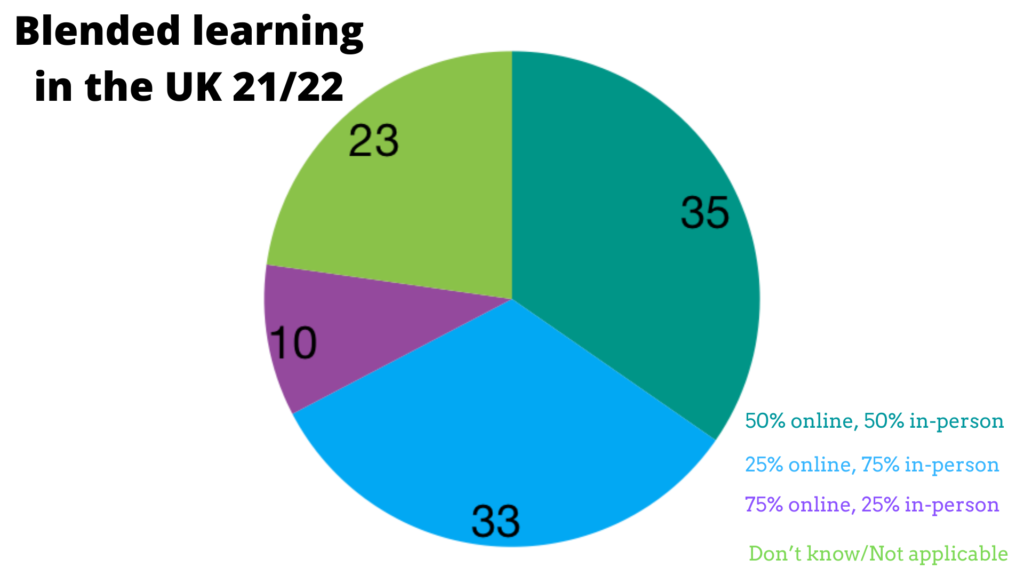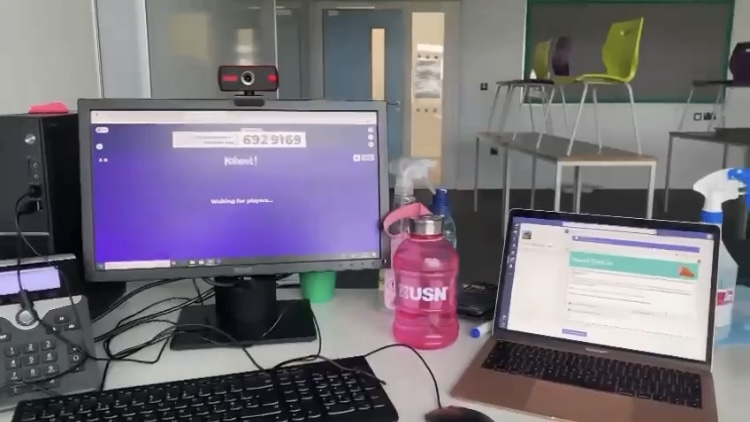As applications for the new academic year begins, blended learning is on the rise to accommodate students in the UK.

Students have now accepted the online education mode as the new normal. Back in March last year, universities in the UK moved most of the classes online except for a few small ones in response to the Covid-19.
As universities in the UK prepare for applications for the 2021-2022 Autumn intake, a better educational experience should be considered.
Pre-recorded lectures, lack of interaction, and poor internet connection, all make online learning the subject of complaints across the world. However, is it totally nothing?
A dermatology student from Cardiff University, Yeshna Ramanna said: “Although online classes haven’t been favourable for the practical part of my course, I actually found it quite flexible for my theory classes. I didn’t think it would be, but I actually like it more for a few classes”.
Yeshna found a few positives that could help students get used to the idea in the future. “I’ve realised that a lot of students that struggle with social anxiety find it easier to communicate on Zoom than in a class full of people. Online classes have made a few students confident to put forth their ideas. It definitely is more convenient for some of them,” she said.

Advances in technology have offered more possibilities for students to engage in learning. And when the pandemic is raging, safety is always above all. In addition, the convenience of life for students is also visible.
“It has definitely been more cost effective and a lot less effort. I don’t have to wake up every day, get ready, eat quickly and pay a certain amount to travel to university. Now I can just get up, log in and have breakfast while attending class or have a cup of tea. It’s almost like I’m in an interactive movie,” said Yeshna.
This is what many students look to live by until the pandemic dies down. Also, some universities are also aiming to continue the idea of online class even after.
Prof Quintin McKellar, vice-chancellor of University of Hertfordshire, said that “even if we didn’t still have Covid, we could be changing our teaching and offering that in the future”.

For students with learning disabilities, online classes have proven to be more effective for their learning experience. In a classroom, it can be quite daunting for them to pay attention to the lecturer with the noise and distractions.
Matthew Fisher, an archaeology student from Cardiff University said, “I have ADHD and a slight hearing disability. In-person classes were kind of tricky for me. But with online classes, there is a certain flexibility which allows me to learn things at my own pace”.
With learning materials and lectures online and accessible 24/7, students find online education is far more convenient to plan out their course work. Lecturers actively update the student learning portals for students to refer at any point of the day in case they miss something out.
“The recorded sessions I can go back to and one-on-one interaction with my professors via breakout rooms and emails kept me motivated. I do love in-person classes, don’t get me wrong. But I think online classes should definitely be part of the curriculum going forward too,” said Matthew.

Online classes can be as fun and engaging if the right tools are used. Lecturers organize Kahoot quizzes, online games and videos to help students interact and to explore different mediums. As Yeshna said, “I think online classes have made students more tech savvy. You can pitch presentations online; it makes you get creative with videos and movies. In a classroom, you probably can’t hear as well but on Zoom, you can hear everything perfectly clear and it’s all right in front of you on the screen”.
Not only Zoom, but also other softwares like Microsoft Team and Google Hangouts are also used across several universities. These softwares have made the online learning experience easier for students as an alternative.
Students applying for this year’s Autumn intake in the UK have a lot more to look forward to when compared to last year. Methods of blended learning would perhaps remain in place until the situation improves worldwide. “The new students will have a lot more to see. They will probably have a 50/50 ratio to begin with until things get better,” said Matthew.
It’s the flexibility that the students love about online classes which tops it all, as Yeshna said, “the universities are being cautious to the situation and being as lenient as possible with our deadlines. They even provide student packages and mental health support whenever you need it. You just need to ask and they’re there for you”.
